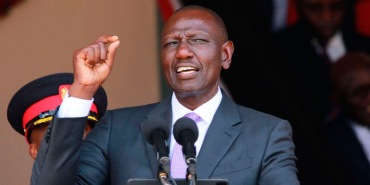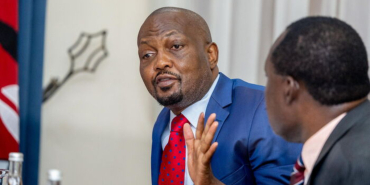Uhuru Kenyatta's Sister Wins Court Battle in Property Dispute with Former Business Partner

In a High Court ruling, Anne Nyokabi, sister to former President Uhuru Kenyatta, has secured a legal victory allowing her to evict her former business associate, Moses Gachemi Nderitu, from a contested maisonette.
The ruling, delivered by Justice Jane Onyango of the Environment and Land Court in Thika, underscores the court's adherence to documented legal ownership and its reluctance to grant relief based on emotional claims or unsubstantiated financial assertions. The court's decision denies Mr Nderitu's application for an injunction that would have allowed him to remain in the residence pending the resolution of a broader legal challenge concerning the property's ownership. Despite acknowledging that Mr Nderitu possesses a "strong case with high chances of success" in his overall claim, Justice Onyango determined that he had not sufficiently demonstrated the potential for irreparable harm should he be forced to vacate the premises.
The judge said that Mr Nderitu had not established "irreparable loss that cannot be compensated by damages if an injunction is not granted." The contested property, situated on land parcels L.R 26680/2 and L.R 26680/5, lies at the heart of a protracted dispute rooted in a personal relationship that evolved into a business partnership before ultimately dissolving. The genesis of the dispute dates back to 2002, when Ms Nyokabi and Mr Nderitu first met. By 2014, their association had formalised into a business venture with the co-founding of KOTO Housing Kenya Limited.
Mr Nderitu assumed the role of managing director within the company. Court documents detail the pair's joint undertaking in planning and executing the construction of the maisonette, initially envisioned as their shared residence.
Mr Nderitu alleges his extensive involvement in every stage of the construction process, from securing building permits to hiring contractors and overseeing the project's execution. He further asserts a personal financial contribution of Sh16 million, sourced from his savings and a personal loan.
However, the relationship deteriorated in mid-2020, following Mr Nderitu's resignation from KOTO Housing. He attributes his departure to financial pressures exacerbated by the COVID-19 pandemic. Conversely, Ms Nyokabi maintains that his departure was voluntary and unrelated to remuneration concerns. The breakdown of their personal relationship triggered the legal battle over the ownership of the house.
In December 2020, Ms Nyokabi offered Mr Nderitu a two-year rent-free lease for the property, purportedly to compensate for his claimed contributions to the construction costs. Mr Nderitu rejected this offer, contesting his characterisation as a tenant in a property he believed he partly owned. His rejection prompted Ms Nyokabi to issue a demand notice, followed by instructions to auctioneers to recover alleged rent arrears amounting to Sh1.17 million.
Ms Nyokabi's stance is resolute: she asserts sole ownership of the properties, claiming that KOTO Housing, under her financial stewardship, funded the entire project. She characterises Mr Nderitu's involvement as purely managerial, denying any personal financial contribution on his part. She stated to the court that "There is no proof that Mr Nderitu took a loan of Sh6 million to develop the property, and there is no proof that the payment of Sh5 million, which he has brought to the court's attention, was utilised towards its development."
Moreover, Ms Nyokabi asserts that Mr Nderitu's occupancy of the premises was contingent upon a mutual agreement that permitted him to reside there as a tenant until December 2022. She alleges that he overstayed his welcome and that his continued presence represents a financial burden, claiming entitlement to a monthly rent of Sh130,000 from January 2023 onward. Mr Nderitu argues that Ms Nyokabi holds the property in trust for him, citing his financial contributions and the understanding that the maisonette was intended as a shared home.
His legal arguments extend beyond financial contributions, encompassing claims of an implied partnership and domestic arrangements during their relationship. He portrays himself as more than a mere tenant or employee, asserting his role as a partner in both personal and business affairs. Justice Onyango, while stopping short of making a definitive determination on ownership or beneficial interest, acknowledged the existence of evidence suggesting that Mr Nderitu may have contributed to the property's development.








Add new comment